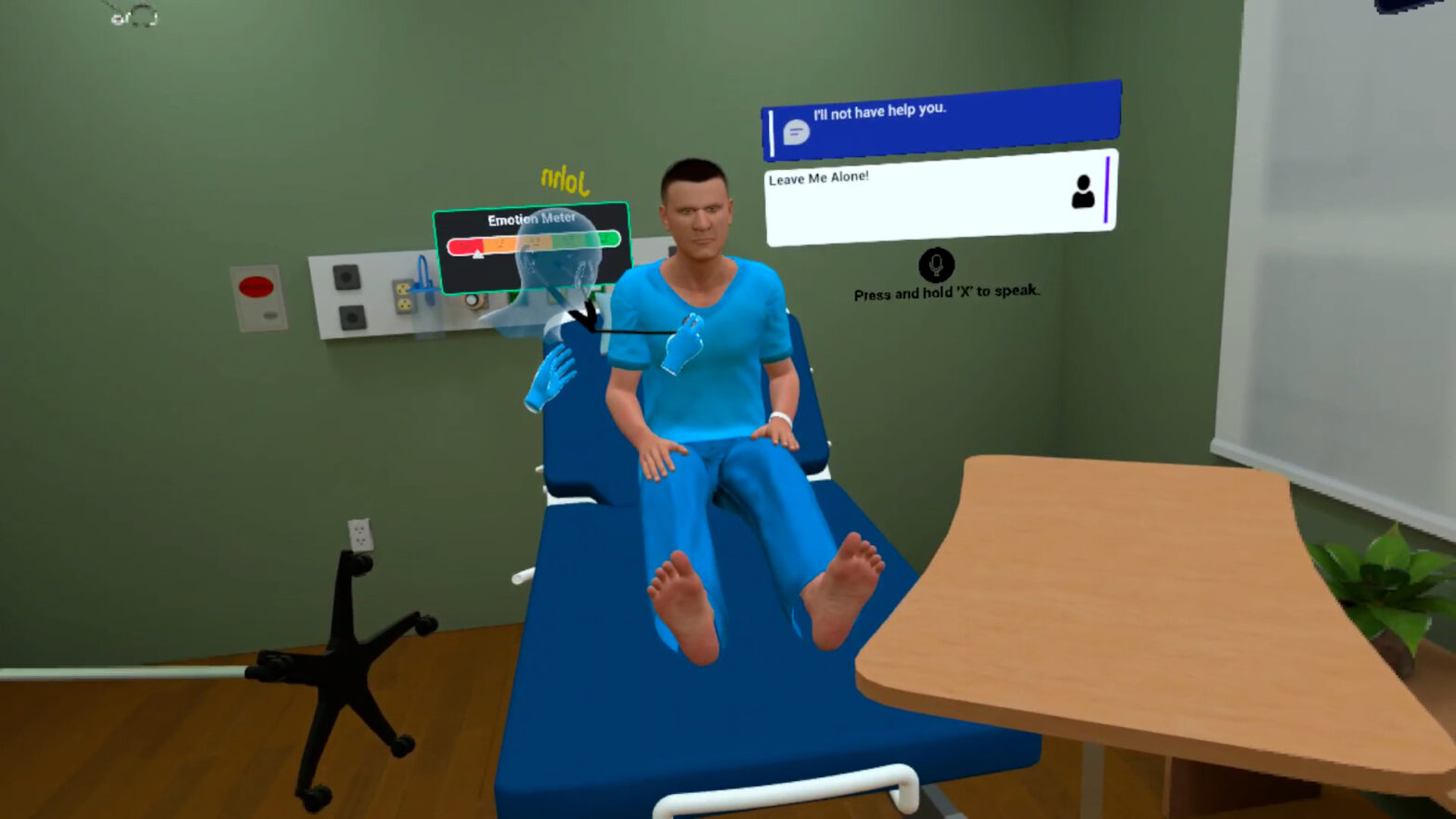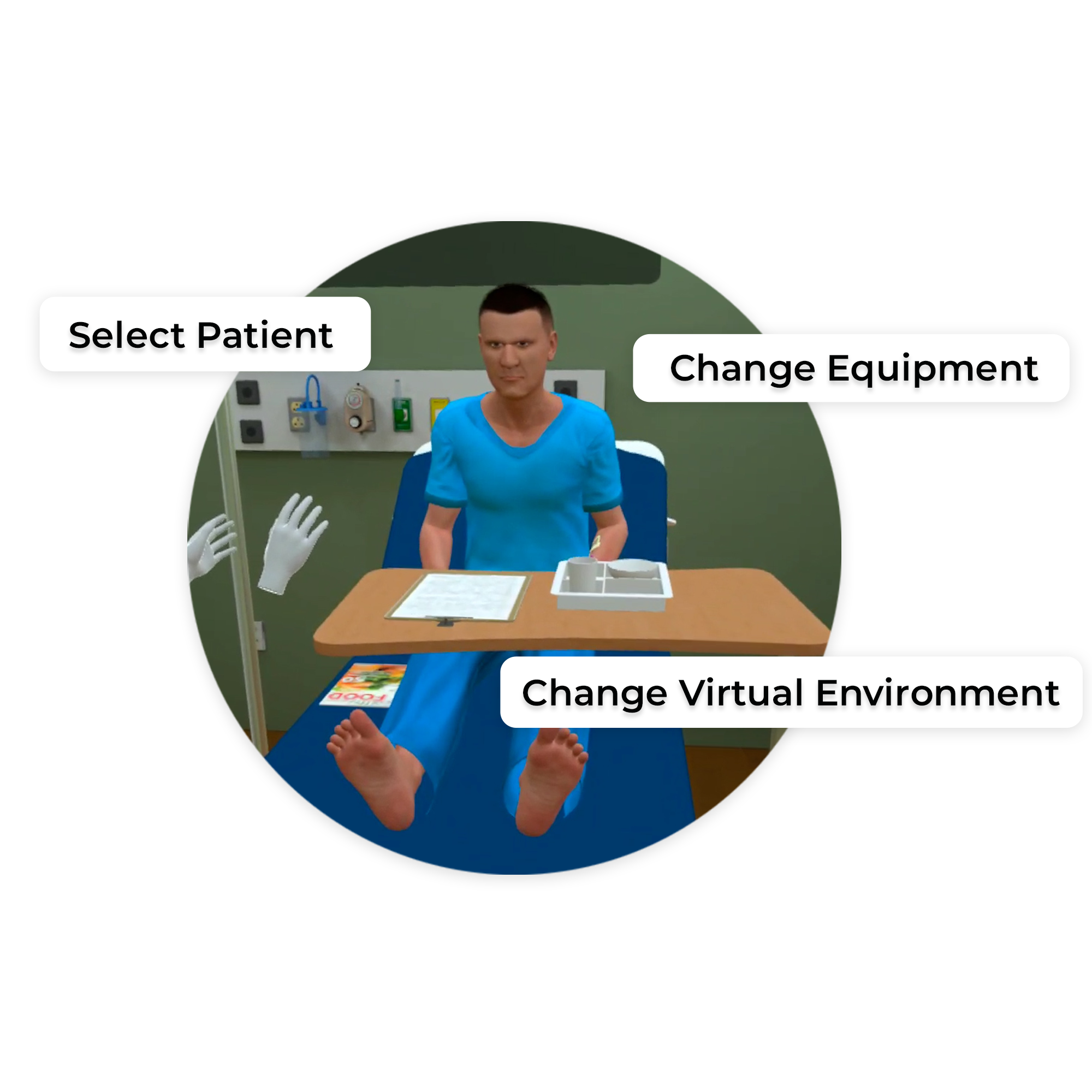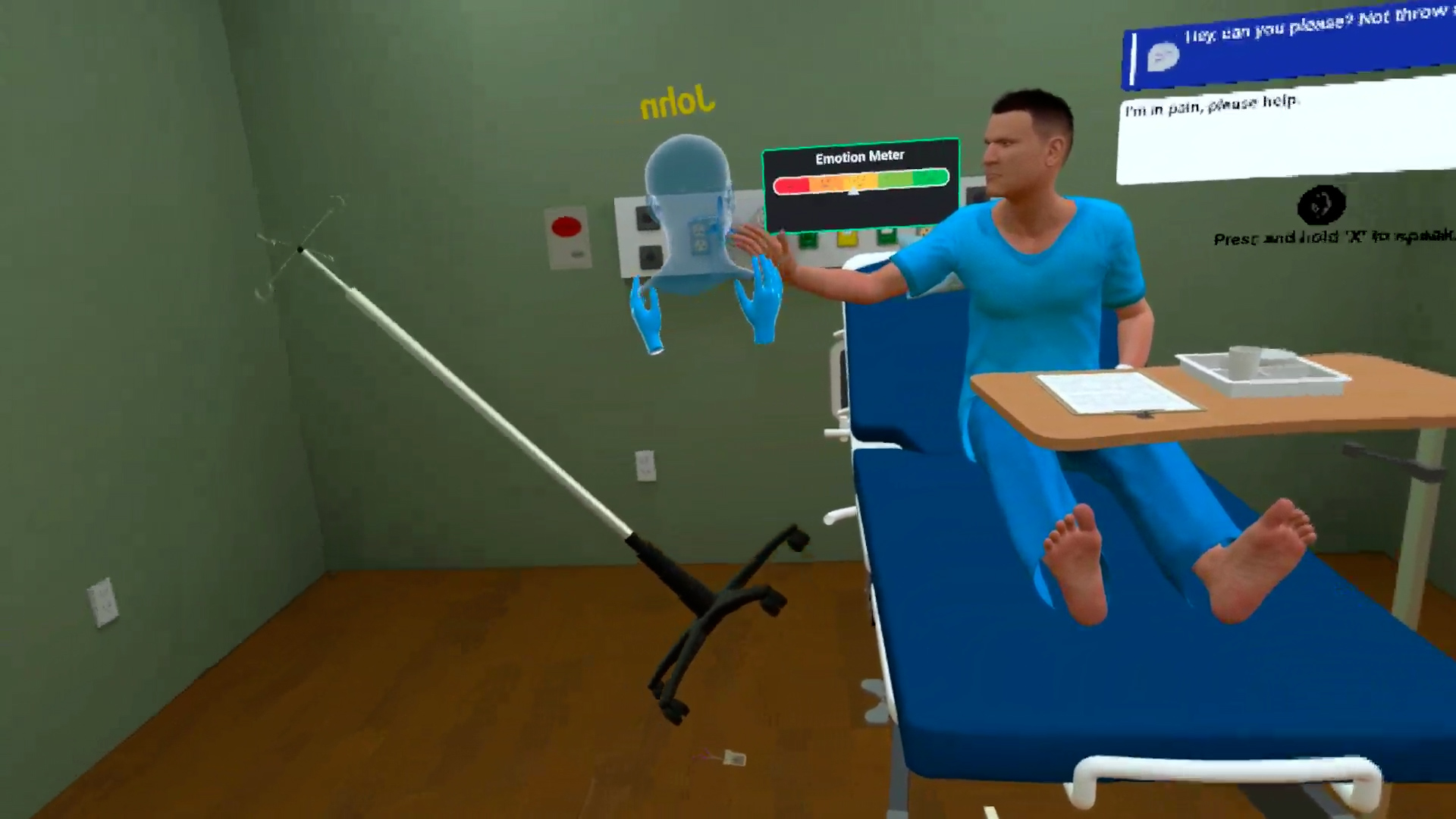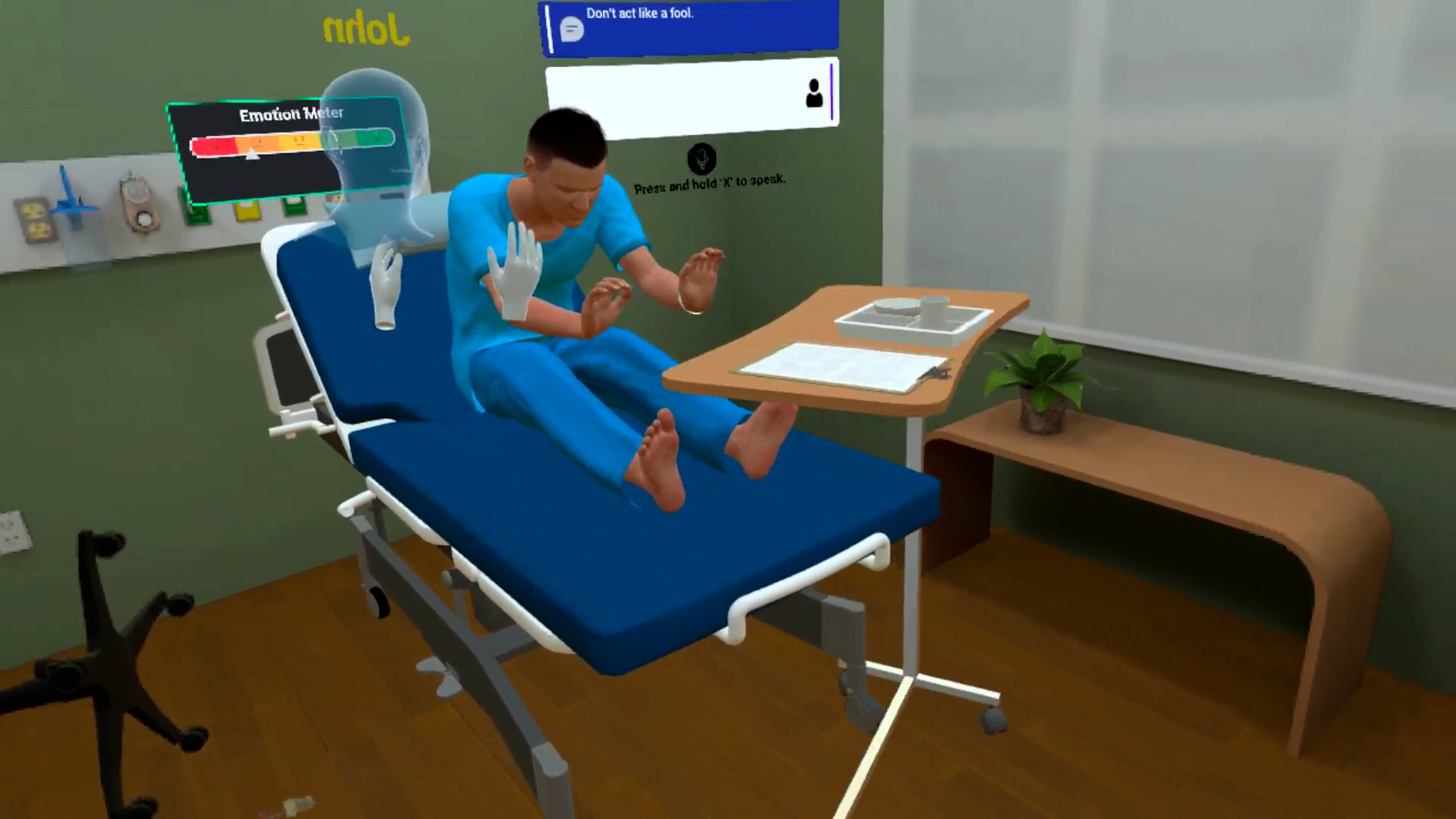Extreme Anger (Abdominal Pain De-escalation)
John Smith is 45 years old and has come to the emergency department with severe abdominal pain. Due to reasons beyond control his CT scan has been delayed. His long wait without being seen turns to anger and frustration and he starts yelling and demanding immediate attention. His agitation grows and he starts throwing nearby objects and threatens to leave without medical advice.
This VR simulation is designed to provide practitioners practice in managing and de-escalating tensed situations like an angry and frustrated patient. It helps test learners on their patient management and critical thinking skills.
- Assessing patient concerns and managing aggression using effective de-escalation techniques
- Using clear communication to reduce anger and create a calming environment
- Maintaining safety while respecting patient autonomy during de-escalation
- Creating de-escalation plans and applying conflict resolution to manage tense situations

- Crisis Prevention Institute. (2023). De-escalation tips and techniques for verbal intervention.
- American Psychological Association. (2020). Strategies for verbal de-escalation.
Customize Your Program
Get rid of the editor. Adopt in-VR customization.
MedVR Education is bringing to you in-VR customization that will enable you to customize your procedural simulations by making selections from a range of feature choices.
- Select patient from a diverse background
- Choose preferred virtual environment
- Configure patient vitals
- Define simulation duration
- Create patient history and train with AI-Humans
- Customize session-end debriefing
- …..many more to come

 Multi-playerSessions
Multi-playerSessions Physics-based Interactions
Physics-based Interactions
Core Skills Training

De-escalating Extreme Anger
As a part of this De-escalation procedure, the learner finds the patient in an angry and agitated state, not willing to cooperate with the examination procedure. There will be a need to de-escalate the situation by talking to the patient, getting them to calm down and consenting to the CT scan. This will be followed by assessment of their pain levels and an examination of their bowel sounds.
This scenario is set in a photorealistic environment and all necessary affordances are made available to assist learners in performing their tasks with efficiency and effectiveness.
Debriefing
End-of-task debriefing to assess one’s performance, evaluate actions, and get the most out of the training. Examples of topics being touched upon in the debriefing include the following:
- Thorough patient assessment
- Completion of necessary steps
- Correct medication administration to patient
- Sequential completion of task
- Execution of time-sensitive tasks






